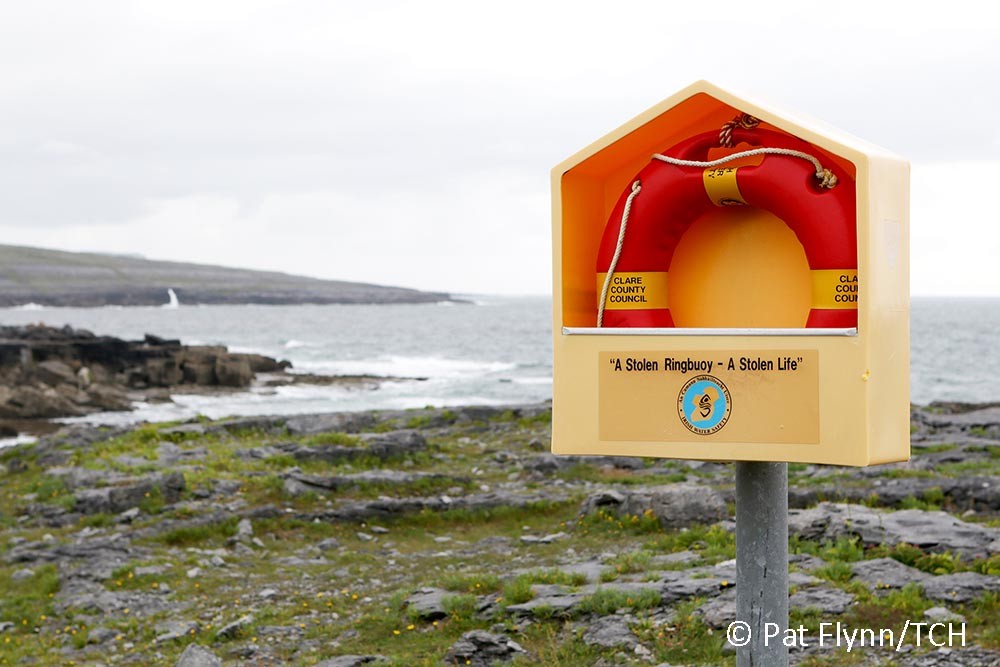
The Kilrush branch of the RNLI has issued a safety warning ahead of the bank holiday weekend.
Coastal fatality figures released by the RNLI show that an average of 23 people die through accidental drowning around the coast of the Republic of Ireland each year and Kilrush RNLI wish to warn of the key dangers that can lead to accidental drowning – cold water, unexpected entry into the water, and rip currents and waves.
The RNLI is asking people to visit RNLI.org/RespectTheWater where they will find information on coastal hazards, how to keep themselves safe, and what to do should they someone else end up in trouble in the water.
Kilrush RNLI Press Officer, Charlie Glynn reinforces the below message:
‘We want everyone to enjoy the water. However, it is powerful and unpredictable and people need to treat it with respect. Each year RNLI lifeboat crews rescue hundreds of people around Ireland but sadly, not everyone can be saved. The real tragedy is that many of these deaths could have been prevented.

‘Cold water is a real killer, People often don’t realise how cold our waters can be – even in summer months the water temperature rarely exceeds 12 degrees, which is cold enough to trigger cold water shock. If you enter the water suddenly at that temperature, you’ll start gasping uncontrollably, which can draw water into your lungs and cause drowning. The coldness also numbs you, leaving you helpless – unable to swim or shout for help.
‘The fact that over half of the people who die around our coast each year never planned to enter the water serves as a warning to us all to stay away from cliff edges, particularly where there is slippery, unstable, unstable or uneven ground; stick to marked paths and keep an eye on the water – watch out for unexpected waves which can catch you out and sweep you into the water.
“If you’re planning to enter the water be aware that, even if it looks calm on the surface, there can be strong rip currents beneath the surface, which can quickly drag you out to sea. The sea is powerful and can catch out even the strongest and most experienced swimmers,” Mr Glynn added.
Stay safe this weekend & #RespectTheWater
For those going out to sea, the RNLI’s top sea safety tips are:
1. Wear a lifejacket
2. Get relevant training
3. Carry a means of calling for help
4. Check engine and fuel
5. Tell others where you are going
6. Check weather and tides
For those heading to the beach, the RNLI’s top beach safety tips are:
1. Swim at a lifeguarded beach, between the red and yellow flags
2. Never use inflatables in strong winds or rough seas
3. Check tide times before you go
4. If you get into trouble, stick your hand in the air and shout for help
5. If you see someone else in trouble, tell a lifeguard. If you can’t see a lifeguard, call 999 or 112 and ask for the Coastguard.
